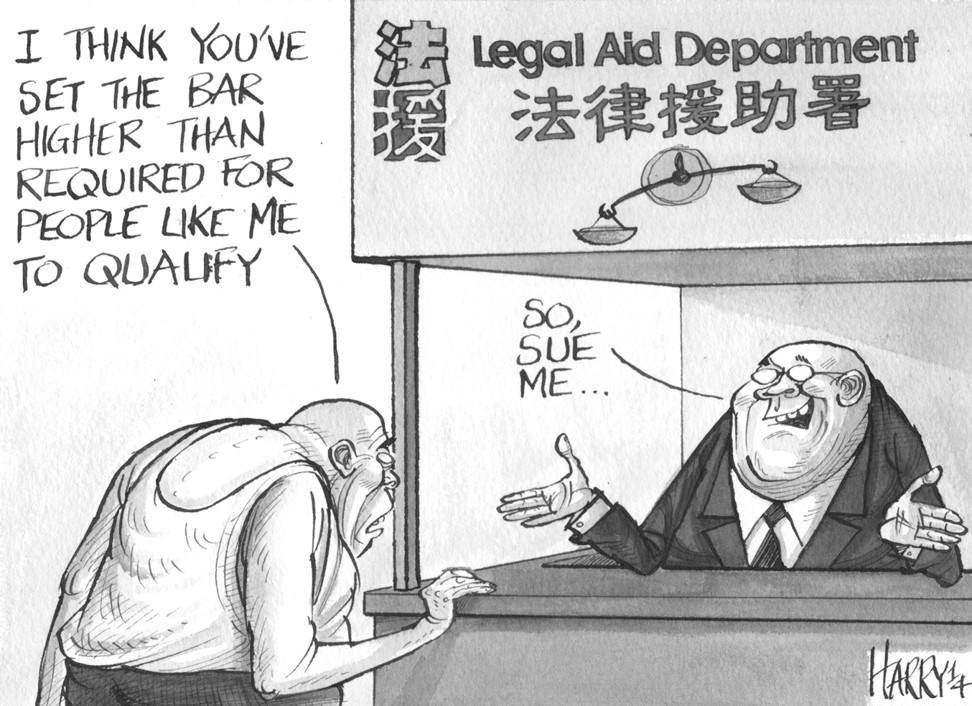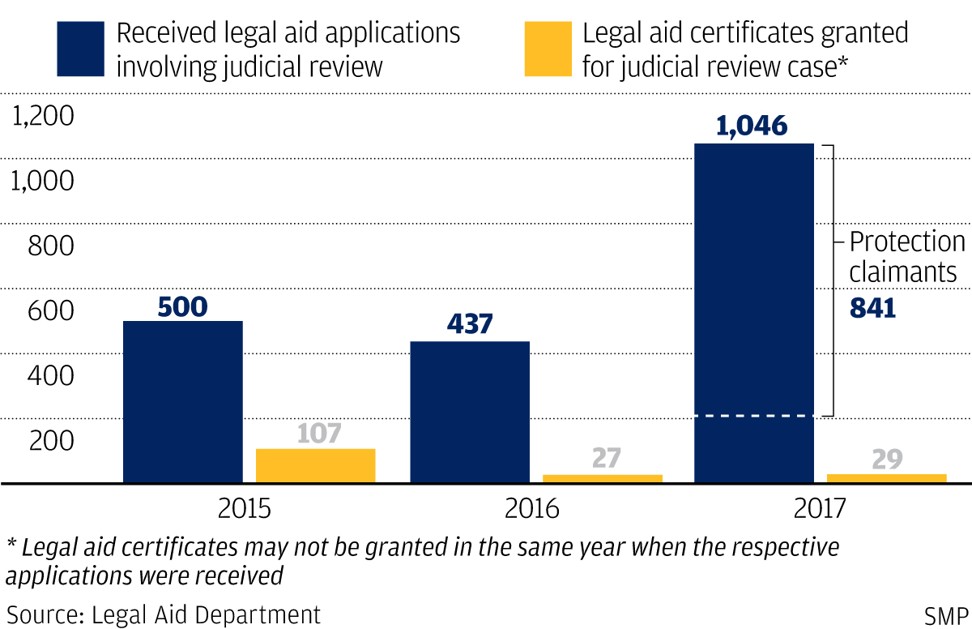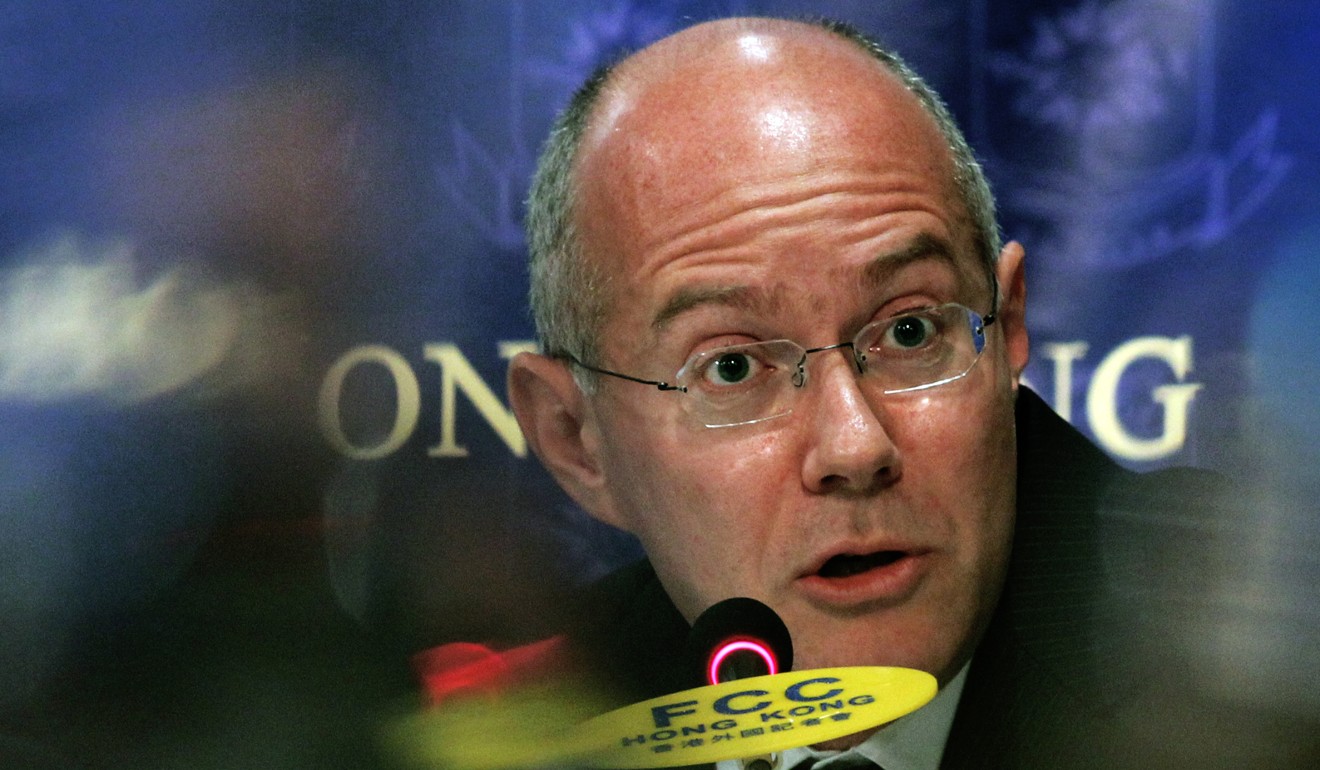
Alarm at drop in legal aid for Hong Kong judicial review applications
Asylum seekers who have nowhere else to turn after losing their claims are the biggest losers
Legal aid for applications for judicial review has steeply declined, with experts saying the trend is undermining the rule of law and access to justice in Hong Kong.
Official statistics showed that last year 1,046 legal aid applications for judicial review were submitted and only 29 were approved – corresponding to just two per cent. This represents a significant plunge since 2015, when 500 were received and 107 certificates were granted.

In total, 1,983 requests were made over the past three years but only about eight per cent received a positive answer. This comes as one of the two seats reserved for members of the Law Society at the Legal Aid Council has been left vacant for about two years.
Racism is alive and well in Hong Kong, but there’s growing sympathy for refugee children
“The difficulties in getting legal aid will disproportionately affect those most marginalised groups in our community … who without legal representation are left to try and make sense of the complex and intimidating court system, or otherwise face removal to where they fear for their lives,” Shaffer noted.

“We have seen a worrying decline in the allocation of legal aid for judicial review applications, and routinely for cases where it’s quite clear there are strong claims to be heard,” he said.
Shaffer also criticised the decisions not being made public.
Leading human rights lawyer Mark Daly has observed the same concerning trend and said that the low approval rates needed to be investigated. “In the last few years the institution has been under threat with allegations of abuse, and further procedural hurdles have been judicially erected moving the goalposts and making it almost impossible for unrepresented persons to navigate through the process,” he said.
Daly noted that “genuine and meritorious claims are being caught in this dragnet.”
Legal aid mostly out of reach for Hong Kong’s needy, report finds
The lawyer highlighted the importance of judicial review as a check on government. “It’s particularly important in Hong Kong where you don’t have so many other checks and balances … Judicial review is your only avenue to challenge government, so that is why I think it’s even more important in Hong Kong until we have democracy,” Daly said. “Each successful judicial review is a reminder that a government decision was unlawful – which is the way it is supposed to work,” the lawyer noted.

Less than one per cent of asylum seekers have their initial claims recognised by the local government. After that stage, a claimant can make an application to appeal. Those who have their appeals rejected may then file a judicial review – a complex procedure that requires formal legal advice.
According to Shaffer, other forms of legal assistance should be allowed in the city, such as community law centres. Currently, non-profit groups can’t represent clients, only law firms are allowed to do so.
Legal aid scheme for asylum seekers sparks conflict of interest concerns
“This body was set up to hear from these three different sectors [barristers, solicitors and other people who are not connected with the practise of law]. It’s not helpful that you do not accept one of the nominations, and it’s preventing the council from doing what is supposed to do,” said Philip Dykes, chairman of the Hong Kong Bar Association.
Lawmaker Dennis Kwok also questioned the absence of a decision. “Why is the seat empty? I don’t know. But the whole situation is very unsatisfactory,” he said. “The legal aid system in Hong Kong is very important and can be improved in a lot of ways. We have been urging the administration to improve the transparency and the efficiency of the whole system,” Kwok noted.
The Legal Aid Department, the Legal Aid Council and the Chief Executive’s Office didn’t immediately return requests for comment.

